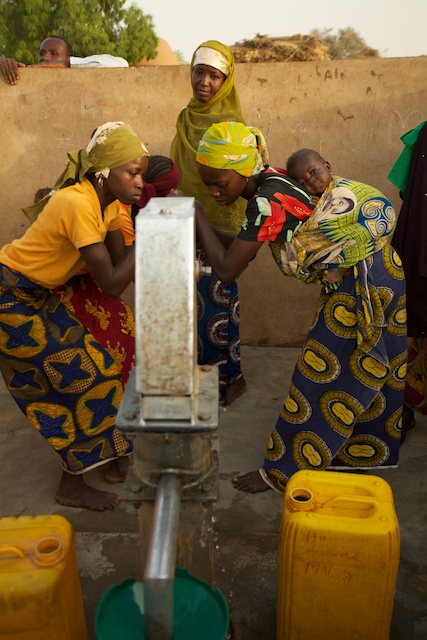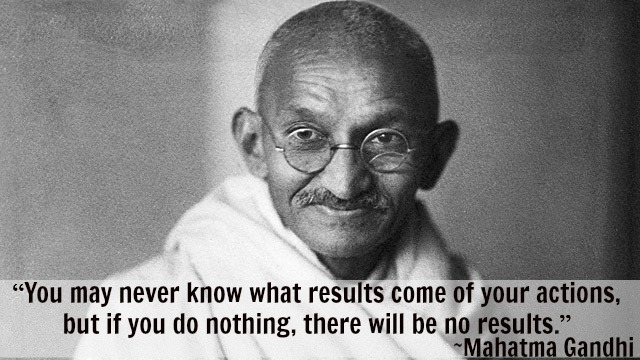 |
Sometimes it Takes a Woman
by Christine Eusebio
Singer James Brown famously sang that this is a man's world. But it would be nothing without a woman or a girl.
She is your neighbor. She is the cashier at the local grocery store, or the CEO of a major corporation. She might be a family member serving in the armed forces.
There has never been a better time to be a woman.
Women bear our children and provide the tender touch of a mother. They laugh, cry, and most aren't afraid to express their emotions. They are nurturers and world leaders. They can raise children and have a career. And sometimes, it takes a woman to move mountains and bring about change.
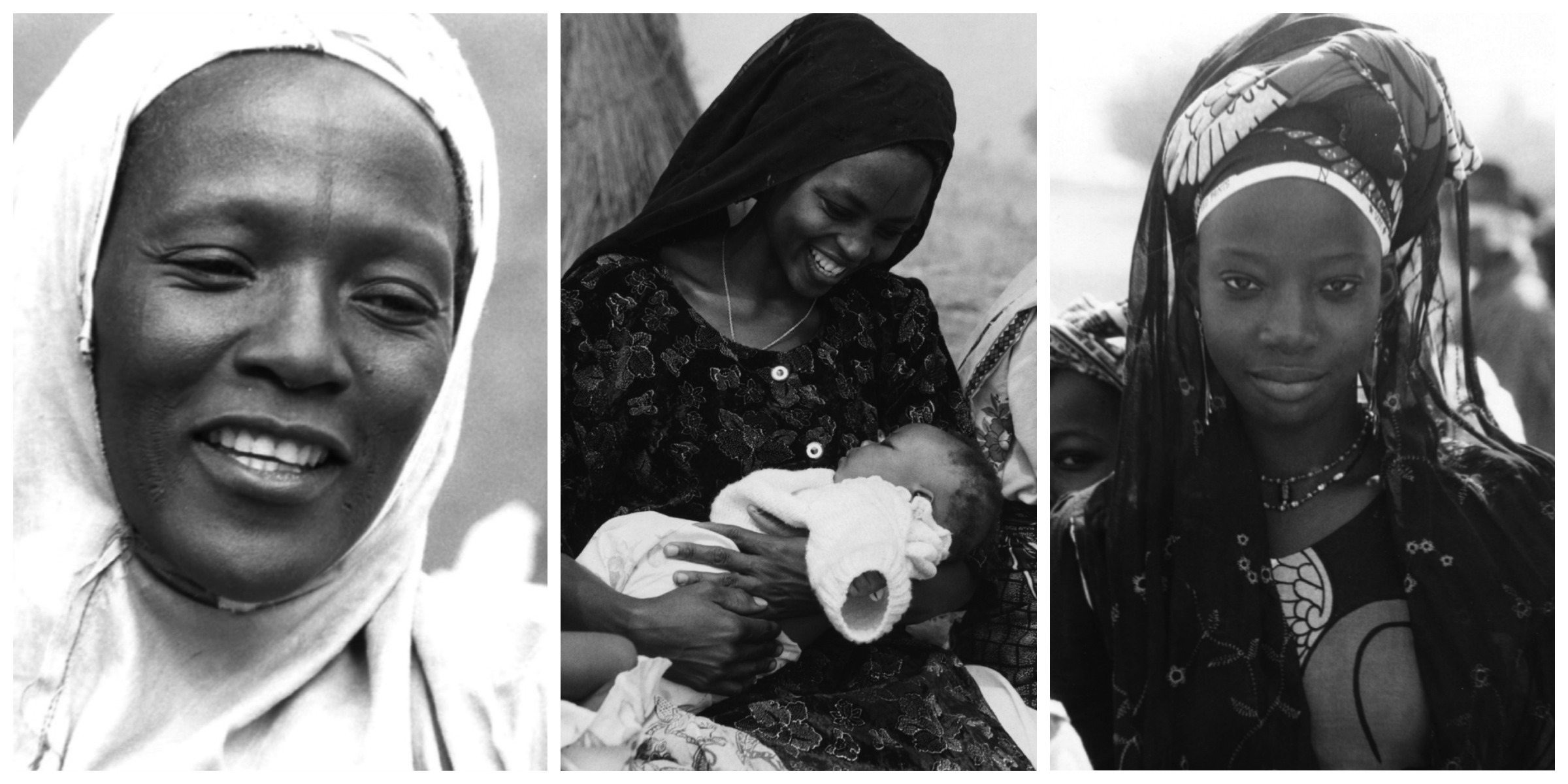 |
| {photos by Gil Garcetti} |
As president of Liberia, Ellen Johnson Sirleaf has shown exactly what women are capable of. She has raised four children and risen to the highest position in her country. Sirleaf’s story is an inspiring one, but it not a common one. The lack of safe water in Liberia and throughout the continent means that most women do not have the opportunities that she has had. Women in Africa spend 40 billion hours a year walking for water, and as a result, education and advancement are near impossibilities. In a speech earlier this year, Sirleaf demonstrated that she has not lost sight of this fact as she reaffirmed her commitment to finding solutions for water and sanitation issues in West Africa.
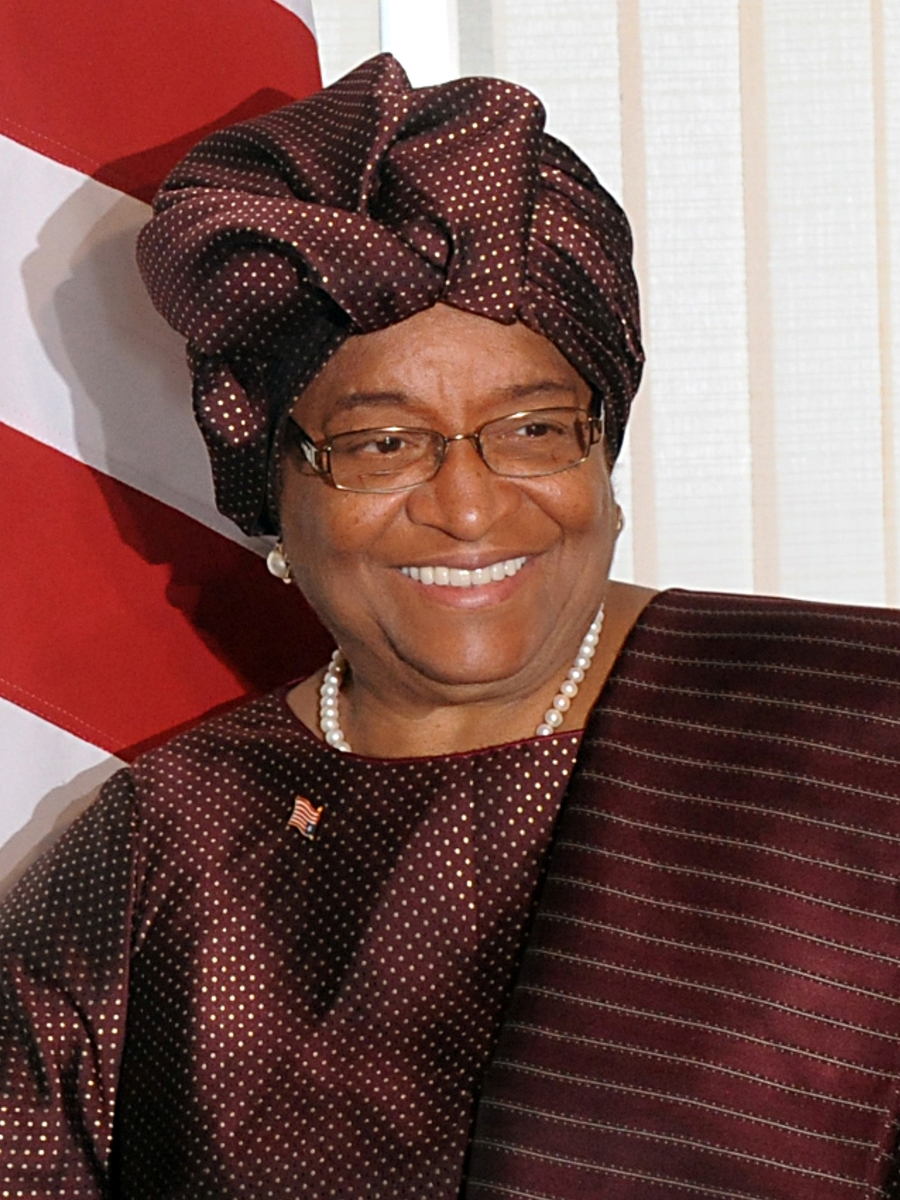 |
|
{President SIrleaf – source: Wikipedia Commons} |
According to Ghana Business News, President Sirleaf stated that many believe that development must occur before adequate sanitation can be implanted, but in reality, improved sanitation is a driver of economic development. This is only logical. When the most basic needs are unmet, there is no time, no physical or mental energy, available for anything else.
While it’s true that women around the world have more opportunities than at any other time in history – Sirleaf is a prime example of this, it’s also trues that for many, there has never been a worse time to be a woman.
Many of the women of West Africa are handicapped when it comes to obtaining adequate health, especially with the concern for fresh, clean water. Everyday, women and girls walk miles upon miles to fetch water to bring back to their villages. This in turn interferes with girls’ chances of going to school to receive a decent education, which begins a vicious cycle that cannot be broken unless proper access to clean water is provided.
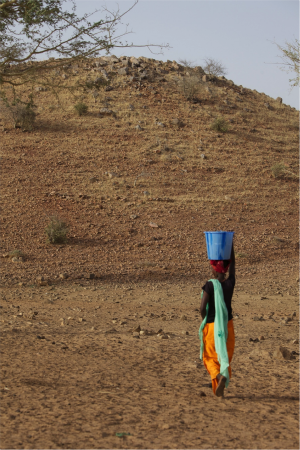 |
| {photo by Gil Garcetti} |
Women across sub-Saharan Africa suffer from inadequate access to safe water. In addition to the personal struggles this creates, their children often suffer from life-threatening bouts of diarrhea and many are malnourished. President Sirleaf summed up the problem when she spoke before at a summit on international poverty reduction, “Without more progress in providing access to safe water and effective sanitation, children will continue to miss school, health costs will continue to be a drag on national economies, adults will continue to miss work, and women and girls, and it’s almost always women and girls, will continue to spend hours every day fetching water, typically from dirty sources.”
Sirleaf, despite her position of prominence and power, is well aware that a lack of safe water is the primary barrier faced by women in her nation and throughout sub-Saharan Africa, and she is committed to progress. Sometimes, it takes a woman.
We Can Do Better
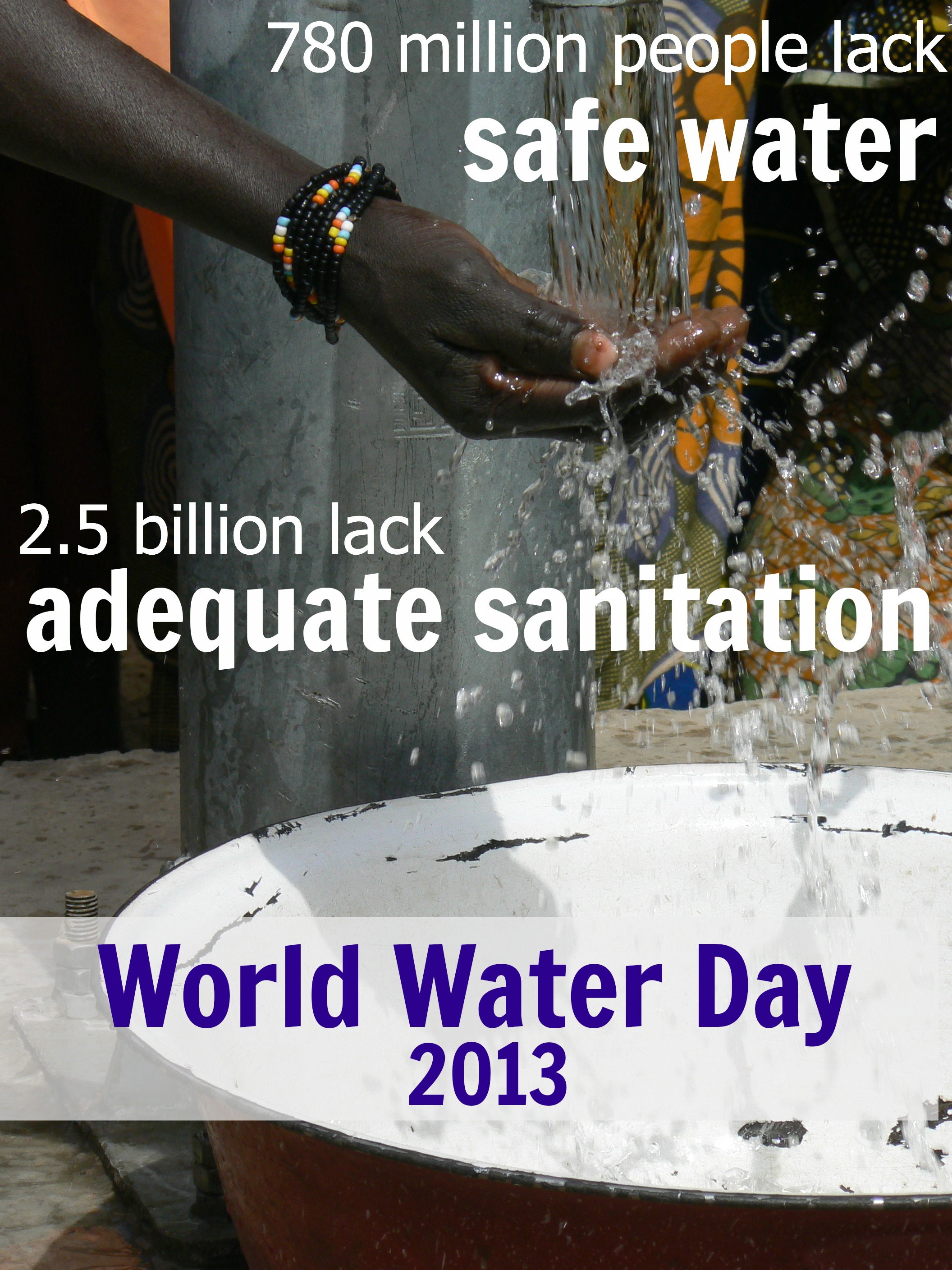 |
| {photo by Barbara Goldberg} |
Investing in Women
by Nicholas Baldry
There are roughly three and a half billion people in the global talent pool whose earning capacity is restricted due to one simple factor – gender. This is a huge problem throughout the world; with women in developed countries such as the U.S. earning nearly 20% less than their male counterparts. In less developed countries, poor families already struggling for survival are hamstrung by limitations on the earning capacity of the female population.
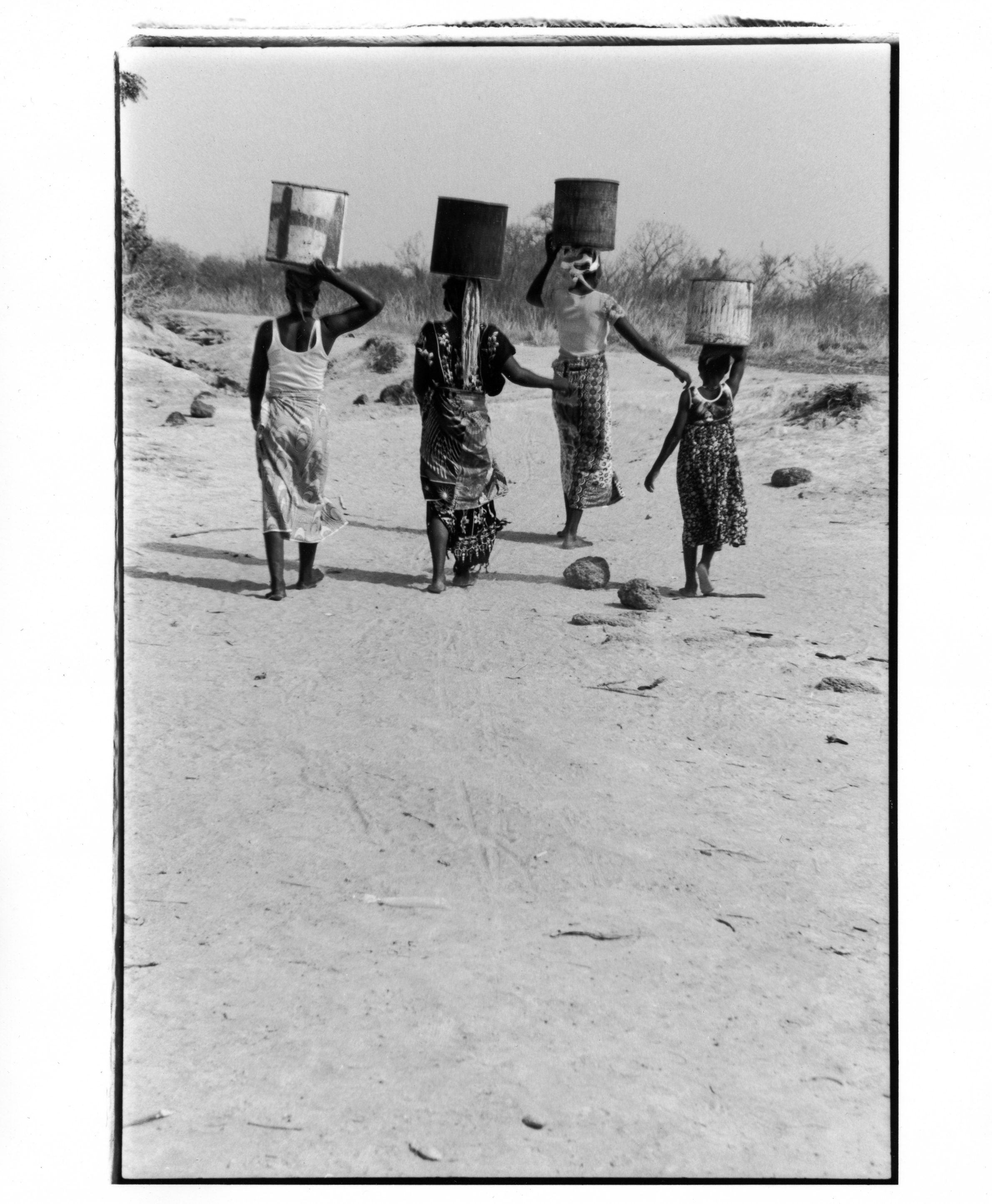 |
| {photo by Gil Garcetti} |
Throughout rural Niger, in fact-across all of sub-Saharan Africa, women and girls are left with the responsibility of spending hours each day collecting water from remote, dangerous, not to mention often- contaminated sources. Beyond this, they are responsible for purchasing increasingly expensive food, and looking after the home and children amongst many other tasks. This means that women not only suffer economic poverty but also an incredible time deficiency. As a result of this massive burden, young girls spend less time in school than boys, and women spend the majority of their time attempting to scrape together the bare essentials of life, dependent on money brought in by the males of the family.
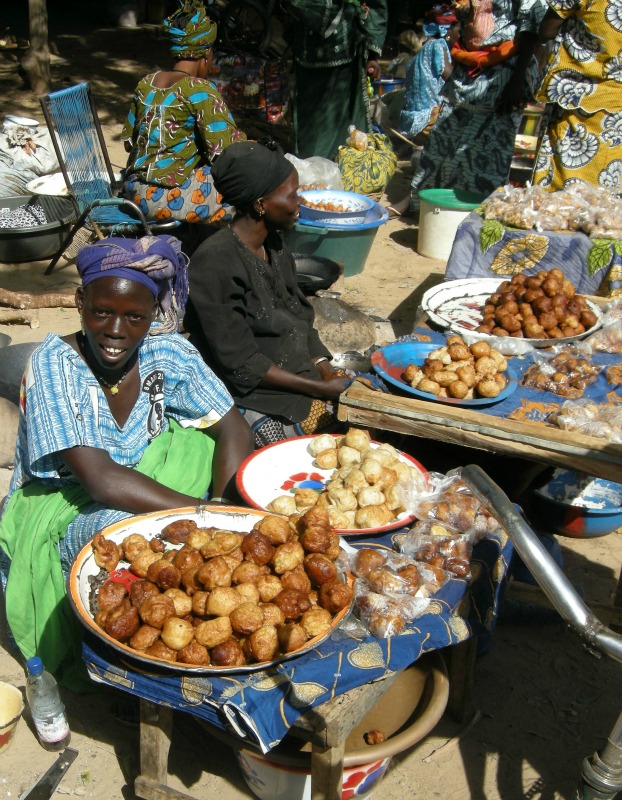 |
| {photo by Ida Harding} |
Time poverty is most certainly one obstacle women face in increasing their earning capacity, but a lack of investment to get them started on their own enterprises is also a substantial stumbling block. This is why Wells Bring Hope doesn’t simply “drill and dash” in the communities where we work. We have recognized the enormous potential of the women of Niger, women who have a strong cultural history of banding together to save money and support one another’s ventures. When we drill a well, we also provide micro-loans to the women in the community. The time that is freed by the drilling of a well, coupled with an initial investment and education in developing a savings and loan model that works for the community allows the women to invest in themselves. They can begin to produce food to supplement their families’ nutrition and to sell at market. They can create saleable products such as soap or millet cakes. These additional income streams make a huge difference to families, particularly in countries like Niger where the GDP per capita is only $374.
Of course I as a white, male, middle-class, Brit living in the United States can sit here and tell you why microloans will help low income women in rural Niger to earn more and how that benefits their families, but the best people to tell you what a difference micro-loans make are the women themselves. On the Wells Bring Hope micro-loans page (here) we have videos where some of the women we have already helped tell you in their own voices what a difference that newfound economic freedom has made to them and how it has helped their families. You can also click below to hear our Director of Microfinance and native Nigerien, Hadiara Diallo, and women of villages where we work discuss the impact of microfinance.
International Women’s Day
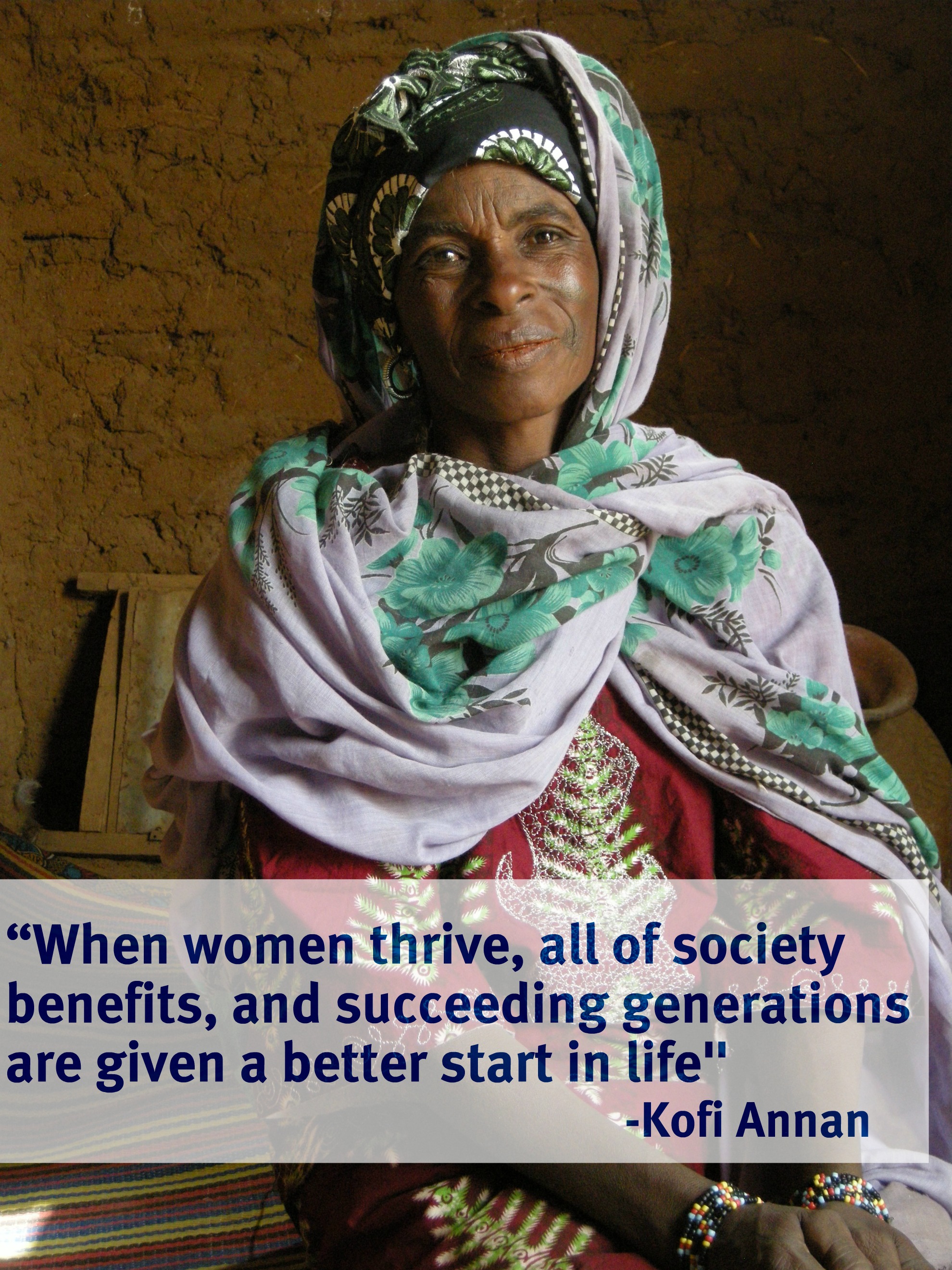 |
How Important is Water?
by Joshua V. Gilbert
In beginning this blog post, I asked myself one question, “How important is water?”
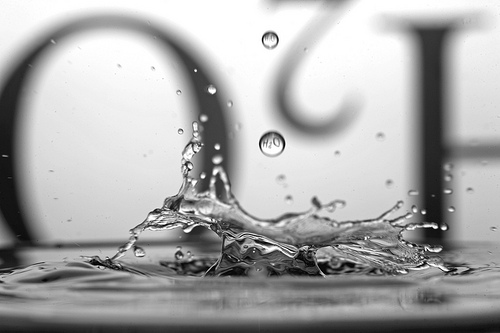 |
| {source: lazlo-photo} |
I get that it’s essential to our survival. I’ve been taught that since kindergarten. I saw 127 Hours. I know that James Franco’s biggest problem wasn’t his arm being stuck under a rock; it was trying to make a half bottle of water last for however many days 127 hours is. I know that in war, when supplies get cut off, it’s not the lack of guns or food that depletes an army; it’s the absence of potable water. I read The Hunger Games. I remember the advice to the tributes – “Forget the weapons. Find shelter and water.”
I understand that water is essential to the human body’s functioning. The question is, how much can I, or anyone, empathize with those who don’t have it? We can try. The first step is gaining perspective. Without perspective, empathy is impossible.
In an attempt to gain that perspective, I tried to imagine that drinkable water was unattainable to me. Just for one day. I tried to construct a fictional world where I could not just turn on the tap and have fresh, clean water flow into my glass. But I couldn’t. Life without water is just unthinkable for someone living in the in the 21st century United States. So, let’s look at this another way.
Imagine that you have plenty of water, but this is how your day unfolds…
1. You wake up and your cell phone is dead. You don’t have a land line anymore. Forget trying to find a pay phone to make a call (the internet is what you really want anyway, right?). You rush to the internet café, just to make sure you haven’t missed the end-of-the world, but the world is still whirling.
2. On your way to the office, your car dies because it’s out of oil. You hoof it a half mile to the nearest gas station, buy some oil, walk back and proceed to work.
3. You arrive to find that the internet is down. No one can even get online on their cell phones. The landlines aren’t working. In the conference room, your co-workers sit staring at each other, having no idea what to do.
4. After a totally unproductive day, you get home to find there is a black-out. Your family has nothing to eat but cold sandwiches. There is no microwave, no television, no internet games, no Facebook. Your wife is “unhappy” because the blackout occurred half way through the laundry cycle. The clothes had to be rinsed by hand and hang dried, all by the glow of a flashlight. Luckily you still have water, so your children can brush their teeth before bed, but a cold bath was not going to be on their agenda.
Sounds pretty horrible, right? I’d venture to guess that if any of us experienced a day like this, we’d tell all of our friends and loved ones that our “bad luck quota” for the year was expended in just one day. We’d post our tale on Facebook and Twitter. No one would believe it. But think about it: Is it any different from the daily life of a woman who must walk miles to find drinking water?
Imagine if every single day of your life you had to search for not even a basic human need but something you rely on to make your life easier and more comfortable like internet, electricity and motor oil? We could technically survive without them. Water on the other hand, is what sustains life. Think of it as an SAT question…
WATER is to THE HUMAN BODY as…
CELL PHONES are to OUR ABILITY TO COMMUNICATE
OIL is to a CAR
INTERNET/PHONES are to a BUSINESS
ELECTRICITY is to a HOME
If you were given advanced warning that your day would unravel as outlined above, and you could pay to make sure it did not, what would that be worth to you? $20? $50? $100?
We’re talking about one day. For the people of Niger West Africa this struggle is their daily life. And it doesn’t have to be.
 |
Gardens Flourish in the African Desert
by Hadiara Diallo
As a seventh grader at the Chadwick School in Palos Verdes, CA, Kate McEvilly, was inspired when she first heard Gil Garcetti talk about the desperate need for safe water in West Africa. When she entered high school two years later and was able to formally start a club at her school, she officially launched the Wells Bring Hope Club. With her passion, drive, and determination, Kate attracted over 30 volunteers. One year later, they had raised enough money to drill a well in the village of Mossipaga in rural Niger, West Africa.
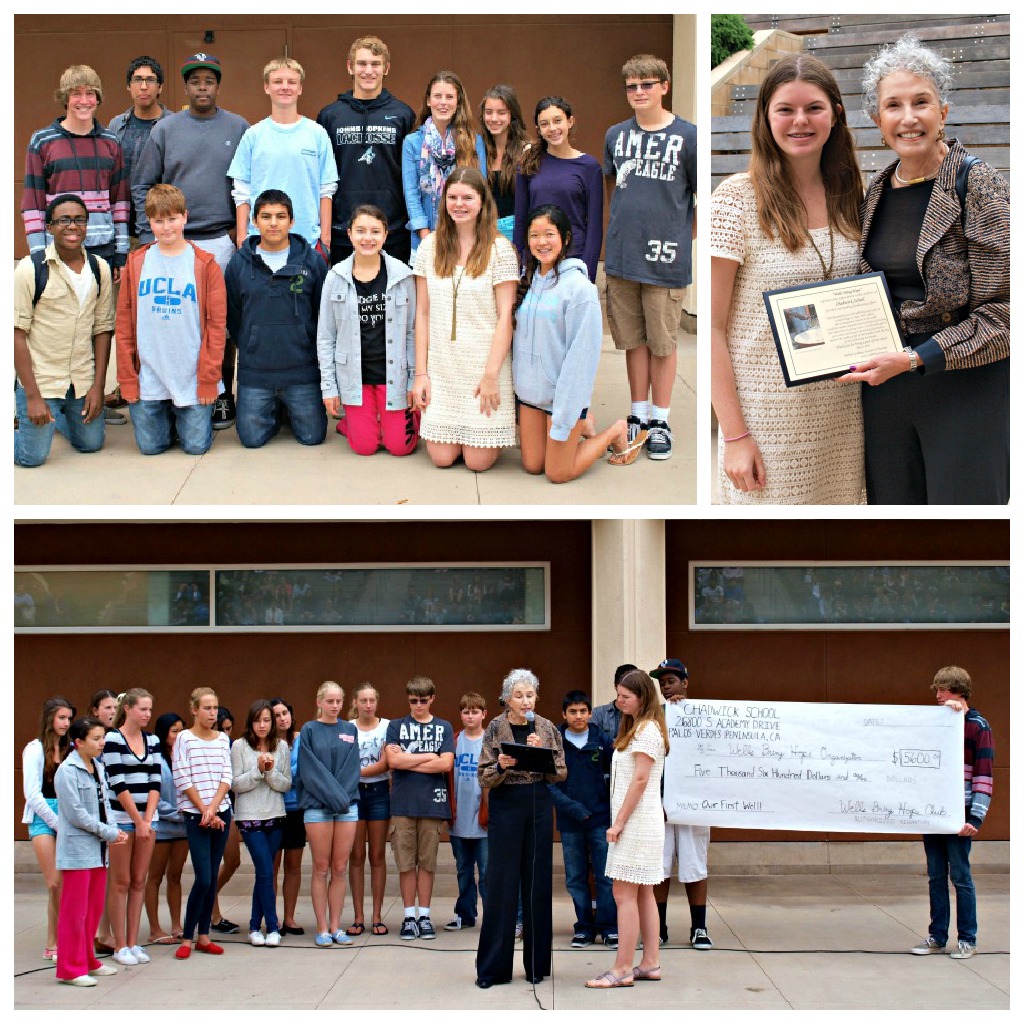 |
In mid-January 2013, I made a trip to Niger and visited that village to dedicate their well. On the certificate was a picture of the some of the members of Wells Bring Hope Club at Chadwick School.
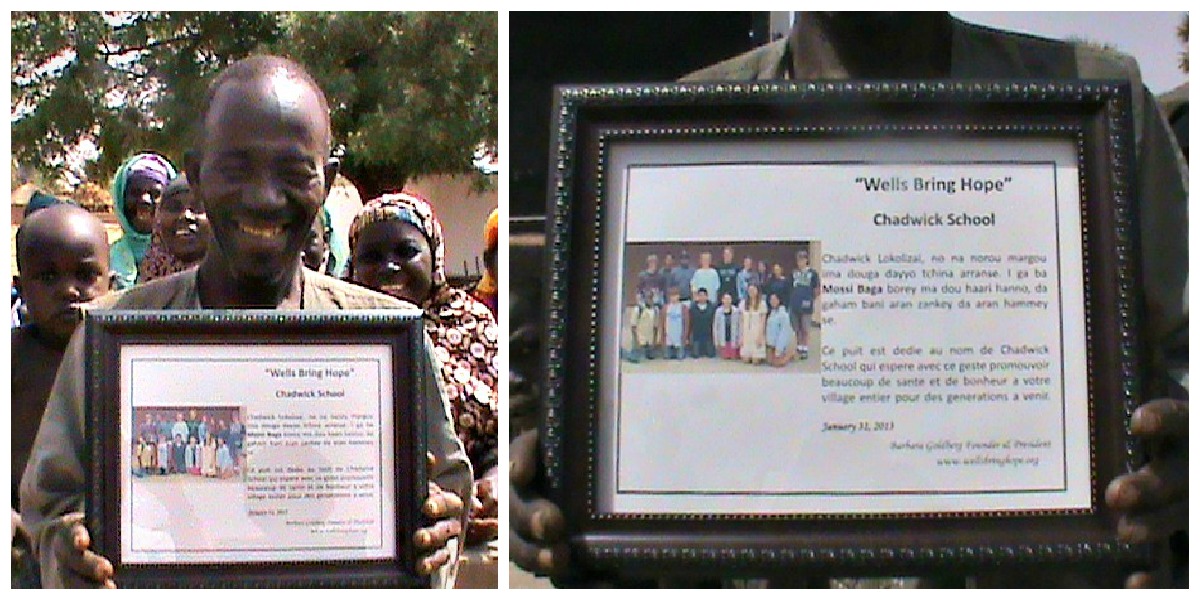 |
The villagers welcomed us with great jubilation. Their joy was infectious as everyone chanted and shouted to express their appreciation. Getting safe water in their community was huge: it meant that babies would not die needlessly and that their children would have opportunities they only dreamed about.
The villagers were astounded to learn that it was group of teenagers who made their miracle of safe water possible. I told them about the hard work, creativity and dedication of these young people to initiate many fundraising drives in the effort to raise money for a well. The people of Mossipaga will be forever grateful for this gift and hope to someday personally welcome the students of Chadwick. After accomplishing their initial goal, these very determined students are now raising money for another well because they know how much safe water means in the developing world.
As Director of Microfinance for Wells Bring Hope, a major goal of my trip was to get a better understanding of how our microfinance program is progressing. When women no longer have to walk miles to get water, their time is freed up to earn money and improve the quality of life of their families.
One of the most important economic development activities that women can engage in is gardening. In Mossipaga, gardening is not about planting flowers and beautifying homes; gardening is a matter of survival. After the rainy season, there are no water sources available to sustain farming, so in the past, the land would stay idle for 8 to 9 months. Now, the women are able to grow these lifesaving gardens, providing food on a year-round basis.
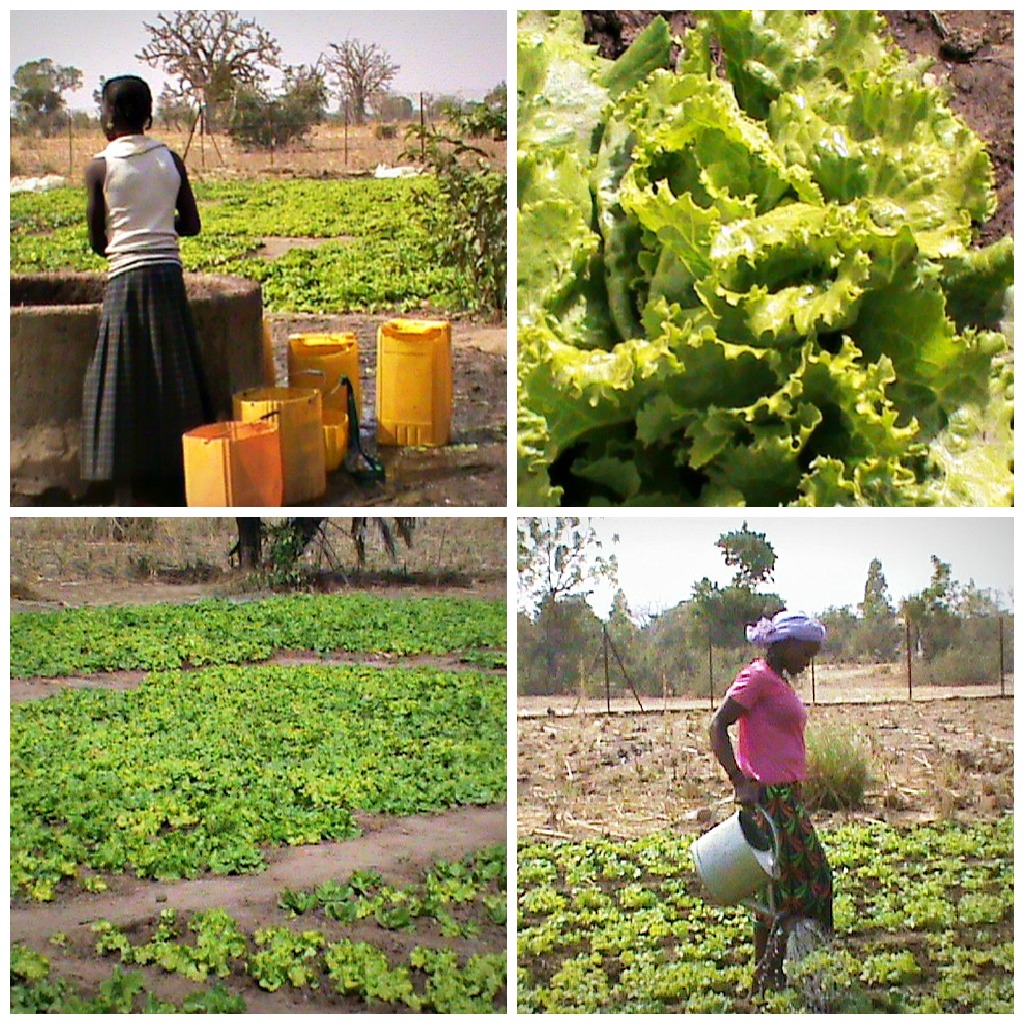 |
The gardening activities fulfill two purposes. First, they provide food for the women’s families and improve their diets with the growing of vegetables. Second, they enable women to sell vegetables in the local market and become mini-entrepreneurs. The direct benefit of these gardens is evident: a healthier, stronger population, kids who are well nourished, and women who are newly empowered income-earners.
With help from agricultural technicians, the women are given some basic tools and taught ways to collect natural compost to enrich the soil. And what do they grow? Salad greens, tomatoes, potatoes, carrots, okra, and cabbage. The women I spoke to were elated that they had been given the opportunity to be so productive, that they can earn money for the first time in their lives. They love their work and feel so much pride in their accomplishment.
Chadwick, this is a job well done, a well-deserved ‘A+’ in global citizenship!
If you'd like to support Chadwick in their efforts to fund a second well, please click below.
 |
The Cost of Dirty Water
 |
| {photo by Barbara Goldberg} |
The Millenium Development Goals and Wells Bring Hope
by Jessica Isaac
Millennium Development Goals — How Safe Water Can Help
Millennium Development Goals – the phrase may sound complicated, but the motive behind it is simple and straightforward. MDGs, as they are referred to, are eight international development goals established by the United Nations following the Millennium Summit of 2000. All 193 United Nations member states have agreed to achieve the following eight goals by 2015:
1. Eradicate extreme poverty and hunger
2. Achieve universal primary education
3. Promote gender equality and empowering women
4. Reduce child mortality rates
5. Improve maternal health
6. Combat HIV/AIDS, malaria, and other diseases
7. Ensure environmental sustainability
8. Create a global partnership for development
The World Health Organization has reported some promising statistics regarding the progress of some of these goals, but we are a long way from achieving success. The three goals listed below are near and dear to us here at Wells Bring Hope because, as we know, access to safe drinking water is often the solution. Each well that is drilled in Niger not only brings Nigeriens one step closer to achieving goal 7 (environmental stability), but also helps reduce child mortality (goal 4) and makes it possible for women to become educated, thereby improving maternal health (goal 5). Each goal listed below has a minimum specified target that will satisfy the MDG as well as estimated statistics from the World Health Organization, which is tracking international progress.
1. Reduce Child Mortality (Goal #4)
Target: Reduce by two-thirds, between 1990 and 2015, the under-five mortality rate
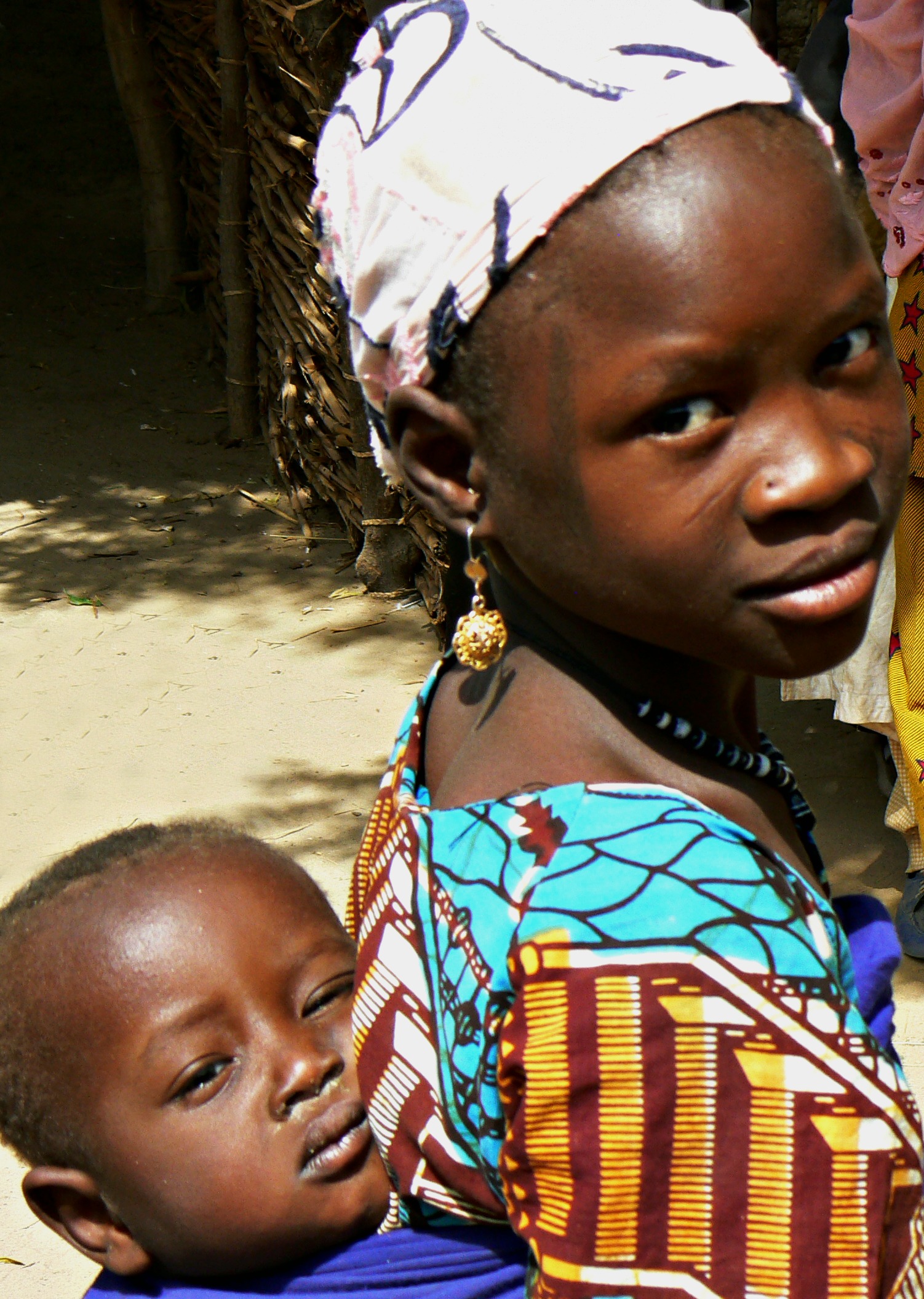 |
| {photo by Barbara Goldberg} |
Progress via WHO.int:
-In 2011, 6.9 million children under five died, compared with 12 million in 1990
-Between 1990 and 2011, under-five mortality declined by 41%, from an estimated rate of 87 deaths per 1000 live births to 51
-The global rate of decline has also accelerated in recent years – from 1.8% per annum during 1990–2000 to 3.2% during 2000–2011
Projection via WHO:
“Despite this improvement, the world is unlikely to achieve the MDG target of a two-thirds reduction in 1990 mortality levels by the year 2015.”
How Wells Bring Hope can help:
In West Africa, the most common cause of death and disease comes from contaminated water. Babies often die from diarrhea, an ailment that can be cured by replacing this contaminated water with clean, safe water.
2. Improve Maternal Health (Goal #5)
Targets: Reduce by three quarters, between 1990 and 2015, the maternal mortality ratio and achieve, by 2015, universal access to reproductive health
Progress via WHO.int:
-a significant reduction in the number of maternal deaths – from an estimated 543 000 in 1990 to 287 000 in 2010
Projection via WHO.int:
“Despite a significant reduction in the number of maternal deaths the rate of decline is just over half that needed to achieve the MDG target of a three quarters reduction in the mortality ratio between 1990 and 2015. To reduce the number of maternal deaths, women need access to good-quality reproductive health care and effective interventions. In 2008, 63% of women aged 15–49 years who were married or in a consensual union were using some form of contraception, while 11% wanted to stop or postpone childbearing but were not using contraception.”
|
How Wells Bring Hope can help:
Women and girls bear the burden of walking 4-6 miles a day to reach a water source, usually contaminated. The task is labor intensive and prevents girls from going to school. Women spend most of their day getting water, having little time to do anything else. They suffer chronic pain from this physical burden and constant stress from having so little time to complete other tasks. When they have access to safe water, women are healthier and less likely to suffer complications during pregancy. In addition, when girls have the opportunity to go to school, they tend to marry and bear children later, drastically reducing the likelihood of maternal death as well as the chance of obstetric fistulas, a frequent consequence of early childbearing.
3. Ensure Environmental Sustainability (Goal #7)
Target: By 2015, halve the proportion of people without sustainable access to safe drinking water and basic sanitation
Progress via WHO.int:
-In 2010, 89% of the population used an improved source of drinking-water compared with 76% in 1990
-Progress has been uneven in different regions.
Projection via WHO
“With regard to basic sanitation, current rates of progress are too slow for the MDG target to be met globally. The number of people living in urban areas without access to improved sanitation is increasing because of rapid growth in the size of urban populations.”
How Wells Bring Hope can help:
The most important aspect of drilling a well is to insure its sustainability. When a well is drilled, we begin the process of teaching villagers how to maintain it and take ownership of it. Ownership of the well belongs to the village and they are responsible for its maintenance. This is very important for building pride and a sense of responsibility. 100% of the wells drilled by Wells Bring Hope have been sustained and are fully functioning. In addition, WBH is well aware of the importance of sanitation. In every village where we drill a well, we also build latrines and educate the villagers about the importance of using them. We also provide ongoing education on hygiene, and we teach mothers and children the value of hand and face washing.
When you support Wells Bring Hope, you are supporting the progress of the Millenium Development Goals.
Happy Valentine’s Day
 |
| {photo by Gil Garcetti} |

